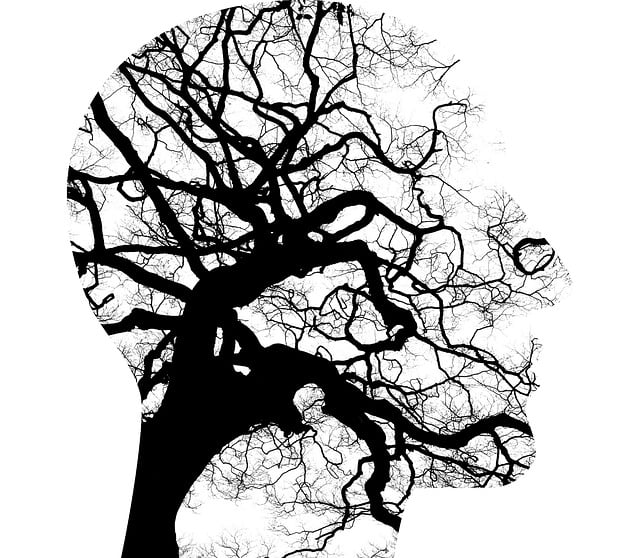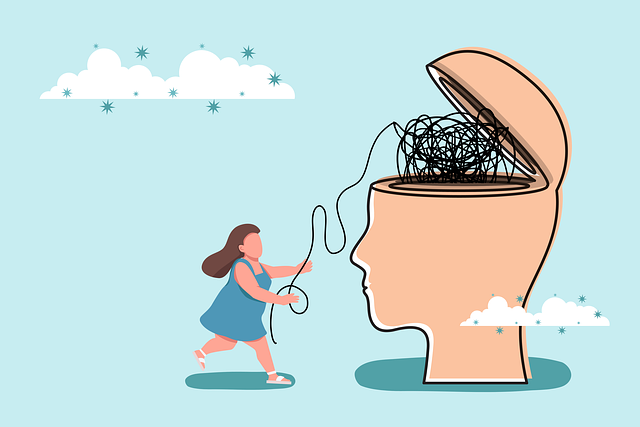Englewood Developmental Disability Therapy (EDDT) emphasizes understanding and managing stress in individuals with developmental disabilities through specialized Inner Strength Development programs. Their stress management workshops, tailored to diverse needs, incorporate emotional regulation techniques, interactive exercises, and group discussions. These workshops aim to build resilience, reduce chronic stress's adverse effects, and enhance healthcare providers' cultural competency. EDDT's holistic approach, combining community learning and practical tools, creates transformative experiences, ensuring accessible and effective stress management for its unique community. Strategic evaluation and continuous improvement based on feedback ensure each workshop meets and exceeds expectations.
Stress management is a vital aspect of holistic care, especially for individuals with developmental disabilities. This article explores effective strategies through organized workshops tailored to the unique needs of Englewood’s community. We delve into the impact of stress on this demographic and present an overview of workshop-based stress management techniques. The focus then shifts to designing and implementing engaging sessions, followed by evaluation methods to ensure continuous improvement in Englewood Developmental Disability Therapy.
- Understanding Stress and its Impact on Individuals with Developmental Disabilities
- The Role of Workshops in Stress Management: An Overview
- Designing Effective Stress Management Workshops for Englewood's Community
- Implementing and Evaluating Workshop Success: Strategies for Continuous Improvement
Understanding Stress and its Impact on Individuals with Developmental Disabilities

Understanding stress is a critical component of effective support for individuals with developmental disabilities. Stress can manifest differently in this population due to unique cognitive and sensory processing differences. What may be perceived as stressful by a typical individual might not carry the same weight or trigger similar responses in someone with a developmental disability. Conversely, seemingly benign situations could become overwhelming stressors. Recognizing these variations is essential for professionals like those at Englewood Developmental Disability Therapy who aim to provide tailored interventions.
At Englewood, our focus on Inner Strength Development and Emotional Regulation is central to our approach. We understand that stress can significantly impact the overall well-being and progress of individuals with developmental disabilities. Through specialized Stress Reduction Methods, we guide clients towards building resilience and coping mechanisms. This enables them to navigate challenging situations more effectively, promoting a sense of control and reducing the potential adverse effects of chronic stress on both mental and physical health.
The Role of Workshops in Stress Management: An Overview

Stress management workshops play a pivotal role in empowering individuals to navigate life’s challenges with resilience and emotional well-being. These structured interventions provide a safe space for participants to learn and practice effective coping strategies, essential for maintaining mental health. Through interactive exercises and group discussions, Englewood Developmental Disability Therapy offers workshops tailored to diverse needs, focusing on everything from emotional regulation techniques to stress-reduction methods.
The benefits extend beyond individuals; these workshops also equip healthcare providers with enhanced cultural competency, enabling them to offer more personalized support. By incorporating skills like coping skills development, professionals can better assist clients in managing stress and promoting overall well-being. This holistic approach not only enhances the quality of care but also fosters a sense of community, where learning and growth are shared experiences.
Designing Effective Stress Management Workshops for Englewood's Community

Englewood’s community faces unique challenges when it comes to stress management, particularly within its Developmental Disability Therapy programs. Designing effective workshops for this demographic requires a tailored approach that considers their specific needs and abilities. The goal is to create a supportive environment fostering learning and coping strategies for daily stressors.
Workshops should incorporate compassionate cultivation practices, promoting empathy and understanding among participants. Engaging activities focusing on positive thinking can empower individuals to reframe challenging situations. Additionally, implementing community outreach program implementations ensures accessibility and encourages regular attendance. By combining these elements, stress management workshops can become transformative experiences, offering practical tools and a sense of belonging for Englewood’s community members.
Implementing and Evaluating Workshop Success: Strategies for Continuous Improvement

Implementing successful stress management workshops requires a strategic approach, especially for organizations like Englewood Developmental Disability Therapy catering to diverse needs. Evaluation is key to understanding the impact and effectiveness of these programs. By collecting feedback from participants, facilitators can identify areas of success and potential challenges. This data-driven method allows for continuous improvement, ensuring each workshop meets and exceeds expectations.
For instance, encouraging positive thinking and building confidence boosting strategies within the sessions can lead to noticeable changes in attendees’ mental well-being. Additionally, focusing on developing inner strength can empower individuals to manage stress more effectively. Regular assessment and adaptation based on these insights will contribute to the overall success and longevity of such workshops, fostering an environment conducive to growth and resilience.
Stress management workshops, tailored specifically for individuals with developmental disabilities in Englewood communities, offer a powerful tool for enhancing mental well-being. By combining education and practical strategies, these workshops empower participants to navigate life’s challenges more effectively. Through continuous evaluation and adaptation, as exemplified by the successful implementation of Englewood Developmental Disability Therapy programs, organizations can ensure that these workshops remain relevant and impactful. This holistic approach not only improves individual lives but also contributes to a stronger, more resilient community.














